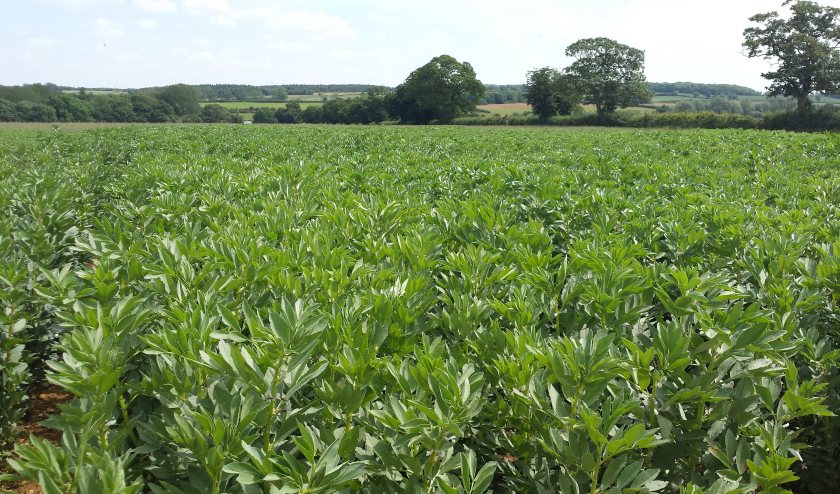
Farmers are being urged to displace imported soya with home-grown bean crops due to the environmental and agronomic benefits they bring.
The Nitrogen Efficient Plants for Climate Smart Arable Cropping Systems (NCS) project has a goal of instigating a reduction of 1.5Mt CO2e per annum.
NCS is made up of a consortium of UK companies, research institutes and farmer networks, led by the Processors and Growers Research Organisation (PGRO).
They are working together to bring about the reduction, which is calculated as 54% of the maximum potential for UK agriculture.
To do this, the four-year £5.9m research project will work to increase pulse cropping in arable rotations to 20% across the UK - currently 5% - and develop and test new feed rations.
This will help livestock farmers to substitute up to 50% of imported soya meal used in feed with more climate-friendly home-grown pulses and legumes.
PGRO chief executive, Roger Vickers, who leads the NCS consortium, said pulses and legumes had considerable benefits for UK farming systems.
“But these have never been truly and accurately measured," he said, "Their value has been sorely underplayed and their potential to address the climate crisis has gone unrecognised.
“Together we can change that. We now have the science, the tools and the know-how among UK farmers, not only to tap into that potential, but to develop it further.
"Bringing that talent together is what lies at the heart of NCS – it’s never been done before, and there’s never been a project on this scale with this much ambition.”
In total, the project, which will be funded by Defra’s Farming Innovation Programme and delivered by Innovate UK, will involve 200 farms and 17 industry partners.
The first stage of the project will give farmers support to establish their business’ carbon baseline, using the Farm Carbon Toolkit.
Emissions from these farms will then be tracked throughout the project and will form a fundamental part of the dataset.
The leading innovators among them, the ‘Pulse Pioneers’, will then be paid to work with scientists to co-design crop and feeding trials to carry out on their farms.
Keen to expand the knowledge exchange beyond this core group of farmers, the project is also launching the PulsePEP (Performance Enhancing Platform), led by ADAS.
This will be a hub for farmers striving to achieve the best from pulse crops and reduce carbon emissions, as well as a place for discussion on best-practice pulse cropping.
The project team is urging farmers interested in being involved – or those who just have a passion for pulses – to sign up now.
“This will be the defining project of our time,” believes Mr Vickers. “It’s not just the chance for UK agriculture to make a seismic shift towards net zero, but it’ll also deliver a prosperous and resilient way of farming for communities worldwide."
